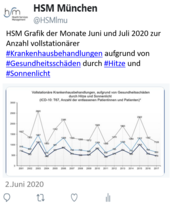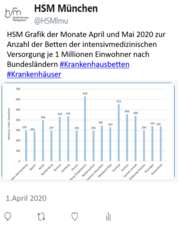Ambulatory Medical Care of Patients with Dementia Mirrored in Claims Data from a Sickness Fund
| Authors/Editors: |
van den Bussche, H Wiese, B Schön, G Eisele, M Koller, D. Steinmann, S Glaeske, G Kaduszkiewicz, H |
|---|---|
| Publication Date: | 2013 |
| Type of Publication: | Articles in Refereed Journals (National) |
| ISBN/ISSN: | 1433-6251 |
| erschienen in: | Z Allg Med |
| Weitere Quellenangabe: | Volume 89(2), Pages 34-39 |
Abstract
Background
On the basis of data from one German sickness fund we analyzed utilization changes of ambulatory medical care services by diagnosis of dementia. Analysis focused on the referral processes from family practitioners to specialists and among specialists for dementia patients.
Methods
In this case-control-study we analysed claims data of 1,848 insured people aged ? 65 years with incident dementia and 7,392 matched controls. Comparisons were made regarding their utilization of ambulatory medical care services as contacts and referrals to different specialists over a two-year period. Pre-incidence, incidence and post-incidence time periods were covered by means of descriptive statistics and regression analyses.
Results
Utilization by demented patients increased by 50 % in the year before the incidence of dementia; predominantly in the disciplines of family medicine and neurology/psychiatry. We found an increase in referrals by 30 % in the 3 months period since diagnosis was first notified; mainly from family practice to neuropsychiatry and from there to radiology. Referrals to clinical chemistry and other disciplines for dementia-specific reasons were negligible. One third of incident cases had at least one contact with a neuropsychiatrist during the year of incidence, and the majority of them visited this specialist repeatedly. Only a minority (13.5 %) of patients was referred to radiology for imaging.
Conclusion
Referral rates to the relevant specialists (neuropsychiatry, radiology and clinical chemistry) are far less frequent than proposed in German guidelines. Guidelines should consider questions of applicability in daily clinical practice and propose effective organizational models of care provision.





